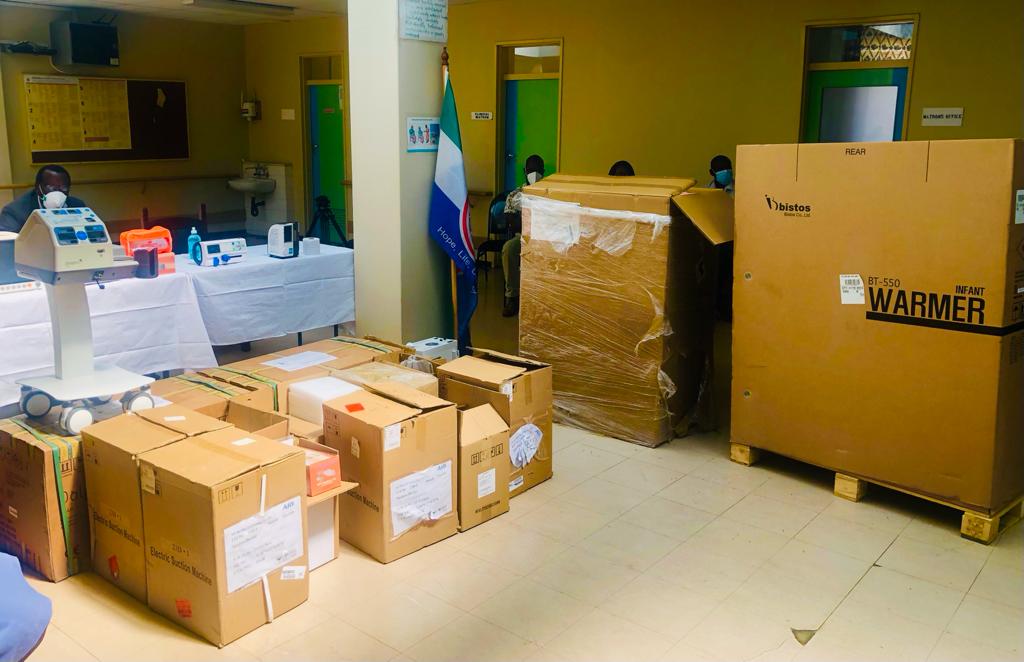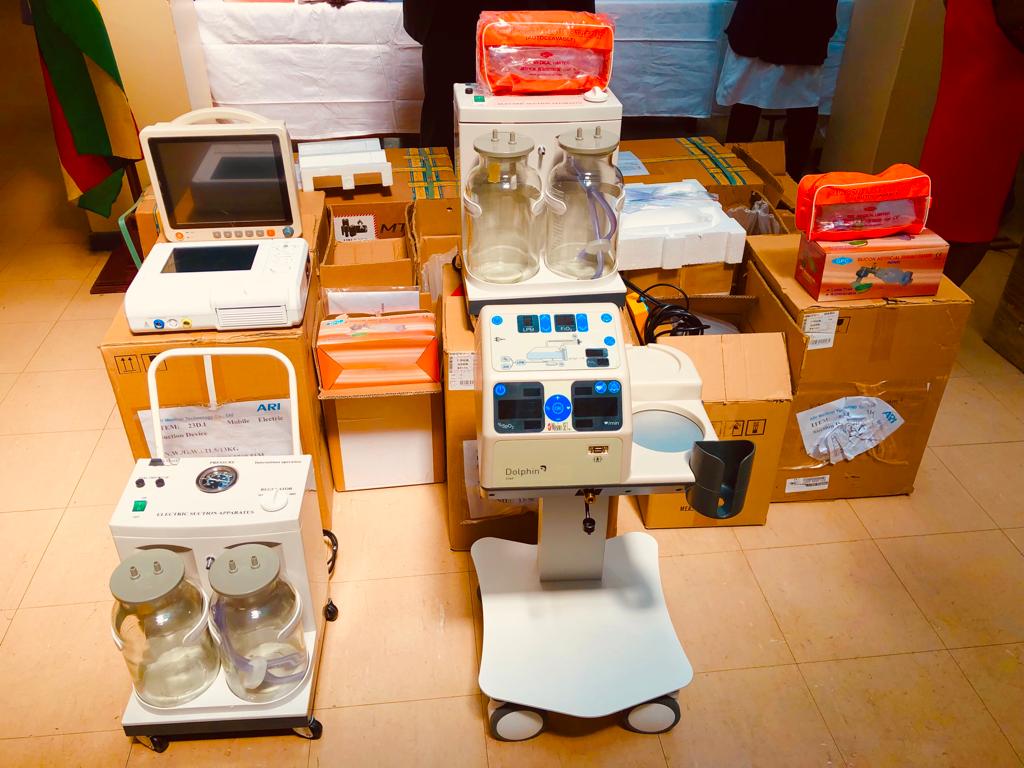Mpilo Central Hospital in Bulawayo Thursday received life saving equipment from Higherlife Foundation for its maternity wing, to reduce its neonatal mortality rate, which currently stands at 30 percent of 10 000 babies delivered yearly at the institution.
Authorities say the 30 percent of babies born at Mpilo suffer suboptimal outcomes such as stillbirths, low Apgars scores, brain injuries, neonatal deaths and long-term learning difficulties, a percentage that must be brought down with quality health care.
Through the life saving equipment, Mpilo hopes to reduce the neonatal mortality rate down to 10 percent.
In presenting the equipment, Higherlife Foundation termed it a placement as they would be obligated to make sure the machines function and when damaged, repair them.
The machines included: four Cardio Tocography machines, one Ultrasound machine, two Multiparameter Monitors for adults, three Vacuum extraction delivery kits, four Suction machines, three Neonate resuscitation kits, three CPAP machines for neonatal, two Infusion pumps, two Syringe pumps and one Rescustaire machine (baby warmer).
Mpilo Hospital Acting Chief Executive Officer, Professor Solwayo Ngwenya, said the lifesaving machines would mostly be used to monitor the heart beat of babies during labour.
“Currently, we have been using stethoscope, which is a like a horn that midwives put on the abdomen to hear a beat but these machines are in electronic form to show the heartbeat of the baby and allow abnormalities to be picked up very quickly so we can do emergency caesarean section to save the baby from brain damage and neonatal death. With these machines, we will be able to reduce neo natal deaths down to 10 or even to zero which will be brilliant,” he said.
Prof Ngwenya noted the equipment was “extremely important” and estimated that Higherlife Foundation spent around US$20 000 to US$80 000 for importation.

“The Multiparameter monitors will go a long way after delivering, as some of the problems we face are women who bleed after delivery so the machine helps in taking lifesaving action. Without this equipment, some women were unable to access high quality machines received today,” he said.
Higherlife Foundation Chief Executive Officer, Dr Kennedy Mubaiwa concurred the machines placement would make sure Mpilo helps pregnant women walk out with healthy babies.
“We really believe we must do what we can to reduce neonatal and maternal mortality so more mothers come out with babies. We brought Cardio Tocography machines to monitor pregnant mothers up and until they deliver, monitoring not by guesstimate but by technology. The Ultrasound machine to continue having proper monitoring at the early stages of pregnancy and suction machines that as soon as babies are born there’s quick suctioning,” he said.
“Because of the high number of deliveries that take place at Mpilo, we supported this institution with three more three CPAP machines for neonatal and the Rescustaire machine so soon after delivery, a baby can be warmed up.”
Dr Mubaiwa added he was pleased about the training programme that was ongoing at Mpilo as it was part of their long term vision to produce skilled maternity wing staffers.
“The more equipment a hospital has, the easier it is to train more and more midwives including auxillary staff within the whole maternity and neonatal parts of the hospital. Without equipment, it’s not attractive for doctors to want to be trained but with adequate equipment it’s easier to train. Training will also help neo natal mortality and maternal mortality to be reduced, as a nation we are still far from our targets but this will takes us towards our planned targets,” he said.
“We have worked with doctors, matrons, University of Zimbabwe and the Ministry of Health and Child Care to make sure there is training running at this institution. We want to make sure that the auxiliary staff in this department are well trained to support pregnant women, that why the training involves security, all the way from reception to the treating doctor or midwife. It is important for everyone in the whole process to appreciate pregnant women.”
Dr Mubaiwa also urged the hospital to quicken the training process so that as partners when they pleaded for funds from well wishers – they would see that staff are eager to be trained and are benefitting.
“Some have asked why train too much people, as they will leave the country, my answer is we will continue to train until people don’t leave. We can’t stop training because people are leaving but will do so until that day, someone says I can continue to stay here,” he said.
Prof Ngwenya agreed that inhouse training was vital as studies showed it reduced neonatal deaths and poor outcomes.
“As you know there’s been an outcry as people feel staff members are not 100 percent. This inhouse training will improve skills. Once you are working, you may be overwhelmed and forget certain nitty gritties that are important and vital such as monitoring of babies. You need to act at all times. The training they want to do will up and sharpen skills so they can be ready for working because there are usually emergencies most of the time here so we are trying to save lives,” he said.

